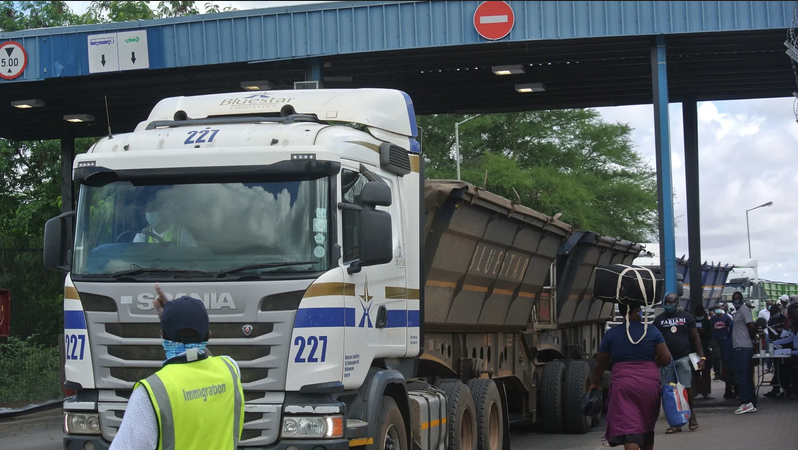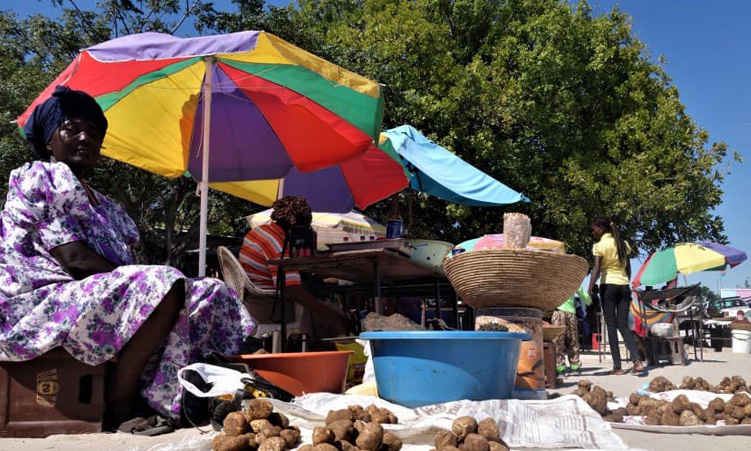Growth-focused businesses in South Africa are increasingly looking to cross-border trade for opportunities to develop their bottom line and deepen their revenue channels.
A combination of the right banking partner and technology is making this a viable option for organisations looking for new markets.
It is no secret that economic growth in South Africa has been constrained through a number of factors which has left the International Monetary Fund (IMF) forecasting a growth rate of just 1% in 2024.
With a growth rate of 1%, the economic pie is not getting any bigger and entrepreneurs are forced to compete with each other and navigate increasingly narrow operating margins.
The problem with being inwardly focused and purely looking at the South African market is that we forget that we form a part of the global economy. Tourism, for example, has recorded a significant rebound in 2023 – while it hasn’t quite reached pre-Covid-19 levels, 8.5 million tourists came into South Africa.
While the sector has been negatively impacted by the pandemic-enforced lockdowns, it does contribute nearly 9% to gross domestic product (GDP).
In rand terms, data from Statistics South Africa indicated that domestic visitors spent R435 billion in 2022 and pre-pandemic, international tourists were bringing in more than R121bn per year. These are sizeable markets in the South African context and represent very real business opportunities.
Agriculture has been another positive proof point for international trade, with South African products being exported across the globe, and soya beans and avocados are in great demand from the EU through to China.
Research from the Agriculture Business Chamber released in February 2024 indicated that South Africa hit a new record in exports in 2023 with $13.2bn. This was achieved despite major issues at the ports and other logistics constraints. Importantly, the sector was not simply driven by exports but also included $7bn in imports.
Import and export trade is not limited purely to the traditional markets like the EU, China, India and the US. Earlier this year, President Cyril Ramaphosa announced South Africa’s first shipment and preferential trading under the African Continental Free Trade Area (AfCFTA).
According to the World Bank, if fully implemented, the AfCFTA could raise incomes by 9% by 2035 and lift 50 million people out of extreme poverty.
As South African – and broader African businesses – are waking up to the opportunities beyond their home markets, the issue of access to finance becomes a key challenge. If we look across our portfolio and where we are seeing a lot of activity, it is typically in capital-intensive sectors including logistics, automotive, mining and manufacturing.
A major pain point that many of the growth businesses in our commercial and business banking portfolios face is that they often struggle with cash-flow issues and then are forced to pursue funders who offer quick turnaround times but at very expensive rates. This is an interesting dynamic that is playing out in the market at the moment where fintechs in the lending space are offering funding solutions which are perhaps nimbler than those offered from traditional banks, but which often come at a higher cost to the entrepreneurs.
One of the frustrations that the banking sector often encounters is that its clients are taking on the incorrect type of funding solutions for their long-term sustainability. The right solutions may take longer to unlock but should be more suitable for the client in the long run. This could include cheaper debt, lower administration fees and more flexible payment terms.
While there is a natural tension between the banks and the fintech operators, one of the areas where we are seeing some encouraging gains is around the digitisation of client documents and other records required for finance.
Whether you are applying for funding or you are importing and exporting goods, you shouldn’t be filling in the same forms over and over again with high levels of administrative friction inhibiting your ability to do business.
We are encouraged by the partnerships we are seeing with our stakeholders to introduce digital solutions to reduce friction and allow for swifter transacting across the business banking ecosystem – from SME through to larger corporate transactions.
Lastly, we believe that if we are serious about the subject of growth in South Africa, then we cannot ignore the environmental, social and governance (ESG) discussion. While many of the larger businesses in South Africa – including multinationals and those listed on the JSE – are beginning to understand the role that ESG plays in terms of unlocking funding and opportunities, many of our business banking clients and stakeholders do not understand how they can utilise this as a growth channel for themselves.
Banks have a key role to play in educating the market around ESG solutions and how they can participate.
South African and African businesses form a key part of the global economy and while there are some constraints around growth, we have the ability to participate in the broader global economy. If we can identify solutions that include import and export of products, we are no longer constrained by the domestic economy.
It is a global playground for entrepreneurs, and we look forward to working with them to unlock these growth opportunities to see them flourish. -IOL
* Matlhako is Head: Regional Transactional Banking Sales (Business Banking) Absa CIB and Stanley Hlamalani Godi is Regional Segment Head: Relationship Banking Coverage Growth, Absa Group.
Stay informed with The Namibian – your source for credible journalism. Get in-depth reporting and opinions for
only N$85 a month. Invest in journalism, invest in democracy –
Subscribe Now!






